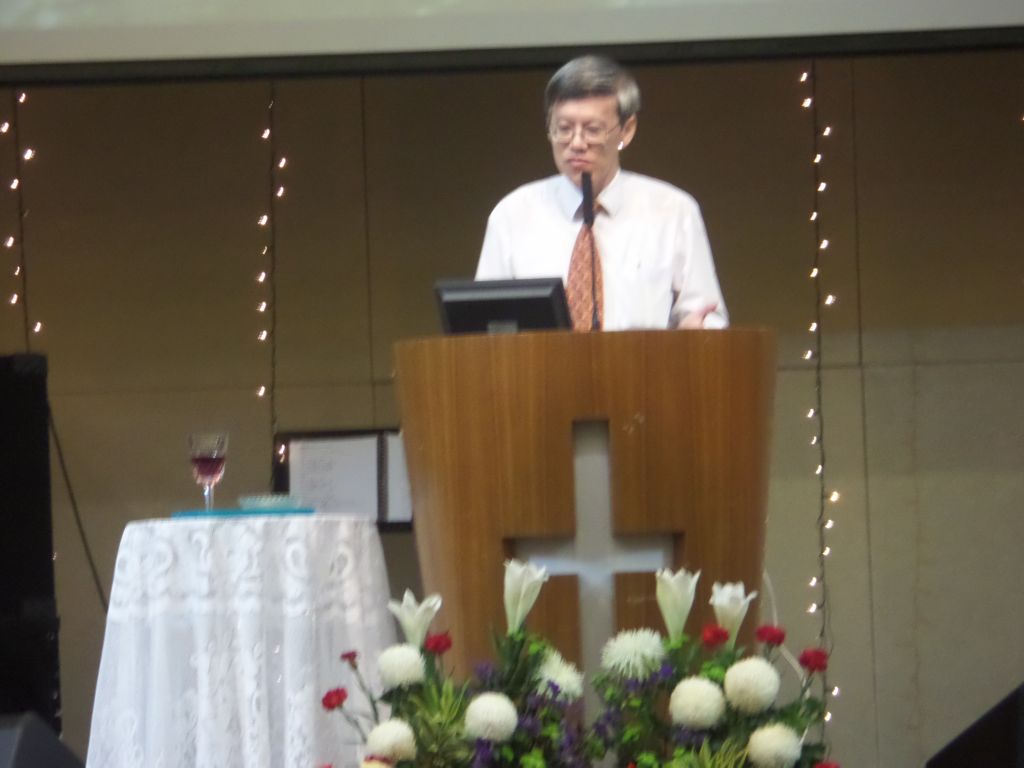
Now we understand why Jesus is the High Priest, we need to also know that we ‘are a chosen people, a royal priesthood, a holy nation,’ and ‘God’s special possession’ as well. (1 Pet 2:9)
Note that the terms used here refer to a group of people, one that is collective and not individualistic.
1 Peter 2:5 says, “you also, like living stones, are being built into a (one) spiritual house to be a (one) holy priesthood, offering sacrifices acceptable to God through Jesus Christ.”
There is only one spiritual house and one holy priesthood, and we as individual stones are called to come together in unity to build on the same one house of Jesus Christ.
Why has God purposed this? This is because God is a triune being Himself who said, “Let us make mankind in our image.” (Gen 1:26) “Us” here means God the Father, Jesus Christ the Son, and the Holy Spirit.
Hence, we too are made to operate our priesthood and live in community and unity. And as priests, we are called to different roles and influence.
All of us are priests – meaning we can gain access to God – but each of us are called to different roles and hold different range of influence.

For example, a church leader holds spiritual authority over their church. Hebrew 13:17 says, “Obey your leaders and submit to them, for they are keeping watch over your souls, as those who will have to give an account. Let them do this with joy and not with groaning, for that would be of no advantage to you.” Our church leaders have to give an account for us.
Also, in a family, men are given the spiritual authority over their wife, like Christ over the church. (Eph 5:22-24, 2 Cor 11:3) In other words, the men are answerable to God for their leadership at home.
Parents are given the spiritual authority over their children (Eph 6:1, Col 3:20), whereby they are called to submit to their parents. But if only the mother is a Christian, then the spiritual authority of parent rests on her. (1 Cor 7:13-14) If a young woman still lives in a father’s household and makes a vow, the LORD will release her from the vow if her father forbids her. (Num 30:3-5)
When a daughter grows up and marries with a man, the husband bears the spiritual authority over her. If she as a married woman makes a vow, the LORD will release her from the vow if her husband forbids her. (Num 30:6-8) But if the husband says nothing, then he must bear the consequence of her wrongdoing. (Num 30:15)
Any vow or obligation taken by a widow or divorced woman will be binding on her. (Num 30:9)

Hence, intercessors and prayer warriors need to apply this knowledge to effectively operate in their ministry, especially in deliverance. For example, a child who experiences spiritual disturbances may be rooted in the occult practice of a parent.
Also, it is important to note that these laws only apply to believers of Christ, as these are God’s ordinances. Hence, is it right for us to pray for nonbelievers for deliverance? Jesus told of how an impure spirit left a person, only to return with seven other spirits more wicked than itself, making the person worse than the first. (Luke 11:24-26) This person is open to being possessed again because he or she has not believed in Christ and come under the protection covering of God. That is why it is important for deliverance and healing to come with believing in Christ and entering God’s Kingdom.
Not only that, complete healing need to come with repentance. James 5:16 says, “Therefore confess your sins to each other and pray for each other so that you may be healed. The prayer of a righteous man is powerful and effective.” Also, after Jesus has healed a man who had been an invalid for 38 years, Jesus said to him, “See, you are well again. Stop sinning or something worse may happen to you.” (Luke 5:1-15) (Read more about repentance here) We can see here that complete healing needs to come with repentance.
What is repentance? Repentance is not merely a verbal confession or a feeling of guilt to weary us. The word repent in Greek is metanoeo. The first part meta means movement or change. The word noeo refers to the mind and its thoughts, perceptions, dispositions, and purposes. So, to repent is to change one’s thoughts, perceptions, dispositions, and purposes, which would inevitably result in change of behavior. To repent is to change one’s thoughts from repelling God to going towards God. At this point, it is also important to know that even repentance is something that God gives, made possible by his grace. (Acts 5:31; 11:18) It is God’s longsuffering and kindness, which lead us to repentance. (2 Peter 3:9; Rom 3:4)

| Share the Good News |
Note: This article is not vetted by the speaker Reverend Lieow Meng Kuang and may not accurately represent the information he shared. It is a reflectional piece put together by the writer from her perspective and understanding as a participant of his seminar, Victory in Spiritual Encounter. Hence, the writer encourages the reader to examine this article in light of the Bible scripture to make a personal stand on this matter. The Bible, again, holds all authority in all matters. To gain a more accurate understanding about this topic, you can also attend the Victory in Spiritual Encounter by Reverend Lieow.

Reverend Lieow Meng Kuang has ministered to the Tamil community and Orang Asli community. At present, Reverend Lieow is stationed at Tapah, where he continues to serve as the Senior Pastor to the Orang Asli church there, and supervised the co-workers among the tribes. Reverend Lieow has over 30 years of experience in healing, deliverance, interpretation of dreams, and spiritual discernment of various types of spirits in the crosss-cultural Malaysian context. And in his seminars, he will teach on how to deal with these issues based on James 5:13-16. Reverend Lieow is married to Mary Chok Fonng Yeen and has four chidlren. For more information on his seminar, please email him at lieow55@gmail.com and kingbun@gmail.com




Leave a Reply